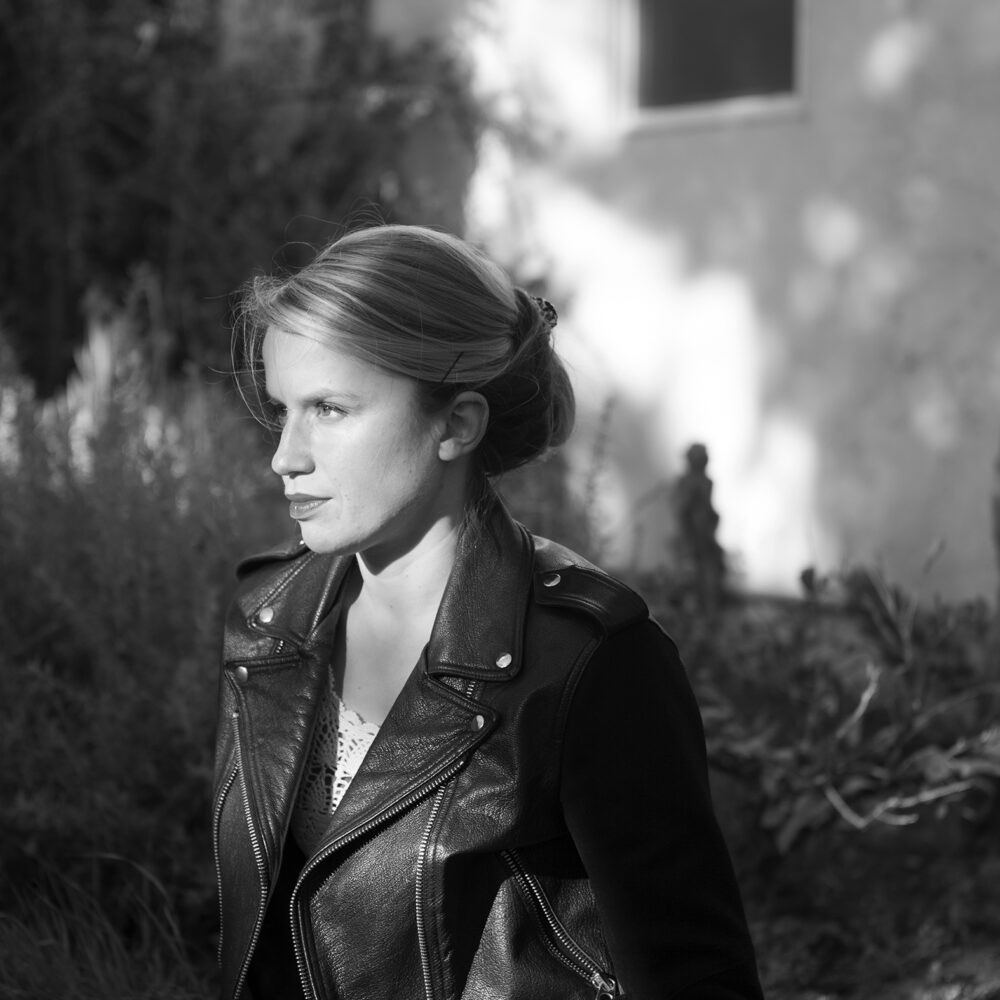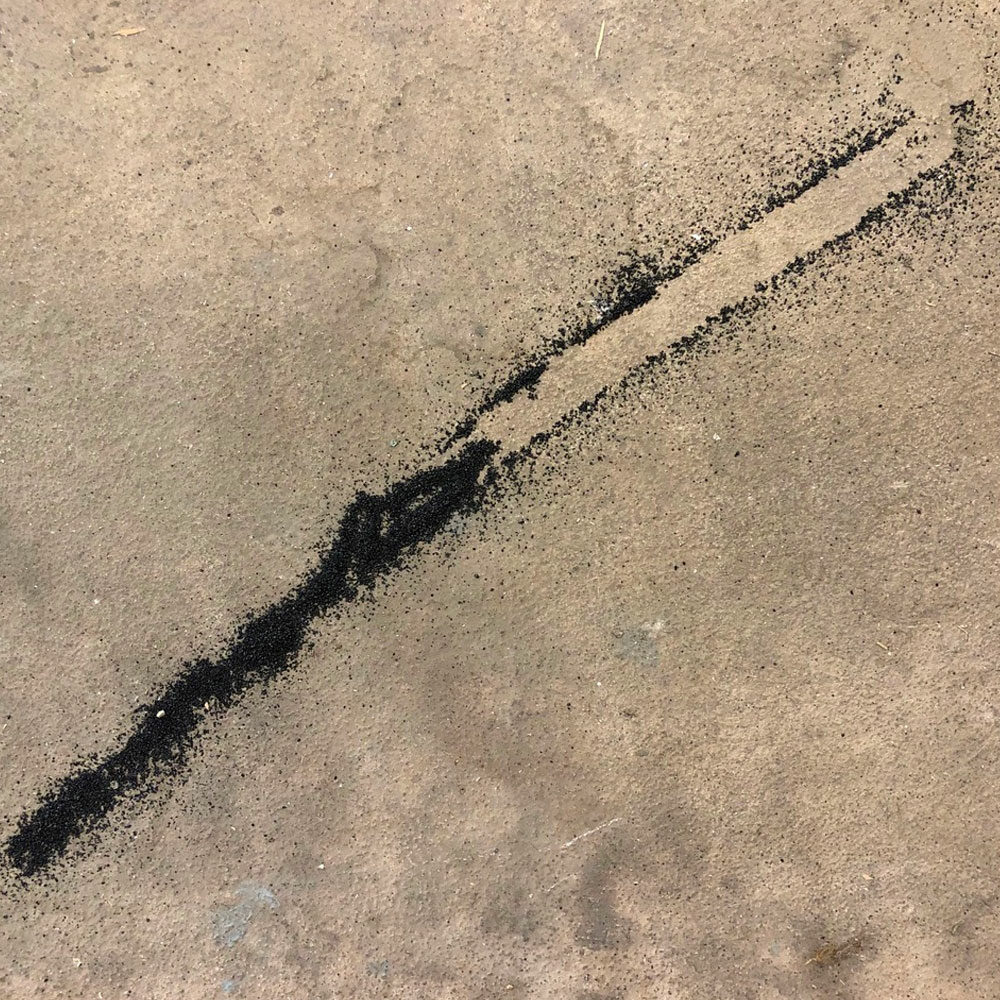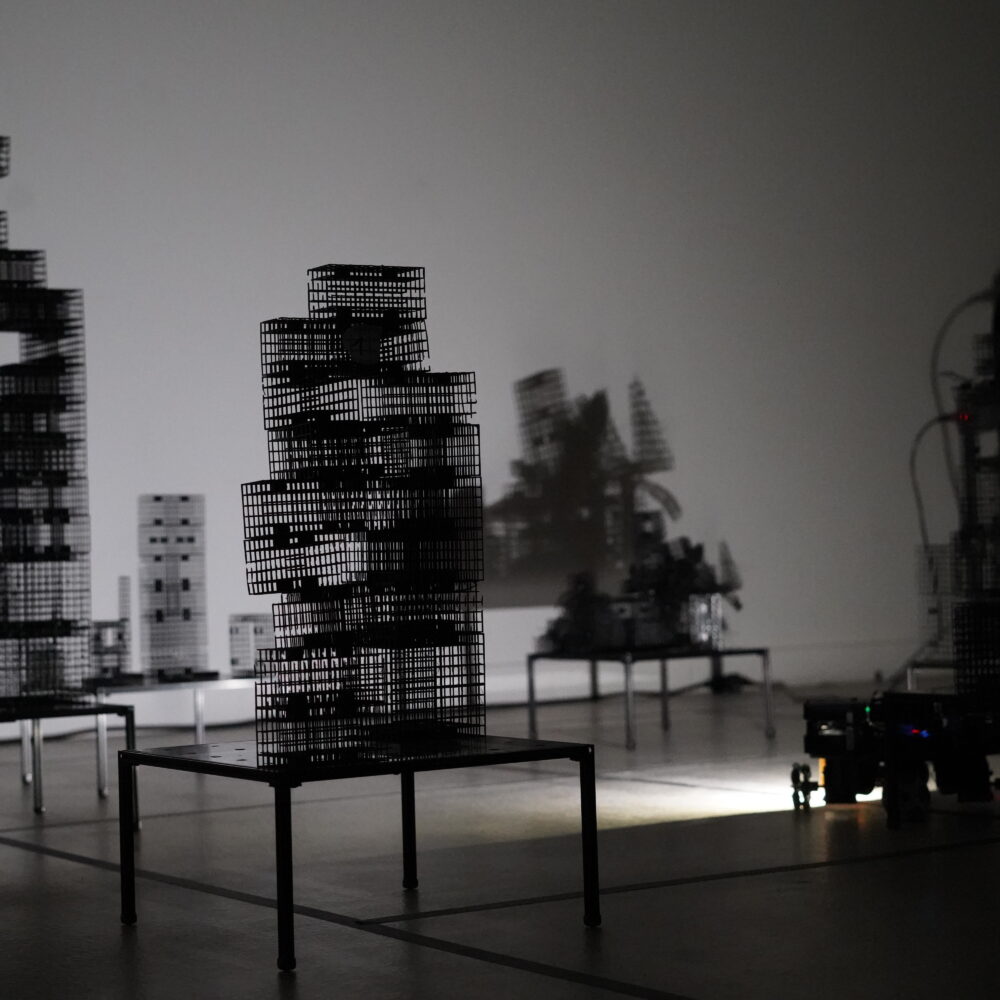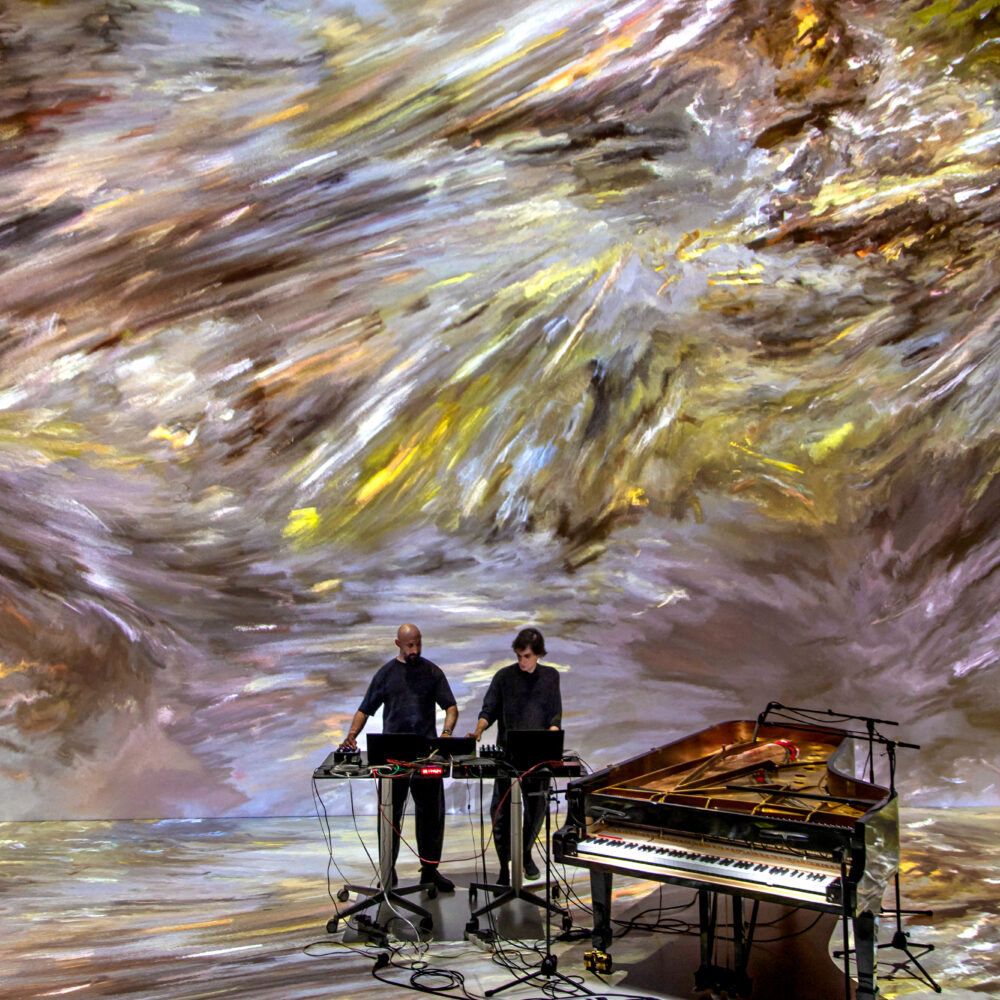The empty sphere
STÉPHANIE ROLAND
Film
Nothing really survives here.
The bottom is so deep that no light ever reaches it.
Very few boats go through.
It is unknown when the falls will take place.
This experimental documentary portrays a space object and its fall into the darkness of a space cemetery. A woman scientist reveals her attachment to this object and the absence of images documenting this mysterious place. As a reverse sci-fi journey, this essay mixes real and fictional archives to guide us, like a stalker, to the outskirts of an invisible place.
In general, a hero of Science Fiction leaves for somewhere else, another planet, a solar system, he moves away from the planet for many possible reasons. Here, we also explore unknown lands, but the movement is reversed, the space object returns to the earth, dives into the water and returns to the heart of the earth.
In the same way, I wanted to make a journey into the materiality of cinema. We start with contemporary 4K Digital Cinema, typical of SF films, and then return to the archive, both real and fictional, in film. The abstract images were made with a homemade camera which mixes the properties of a sonar and an instrument to analyze exoplanets, linking here the ocean and space.
The vast majority of SF’s protagonists are white Western men between the ages of 30 and 50. It is important to me that the only character here is a scientist woman in her fifties, an age and gender range that is underrepresented in science as well as in film representation in general.

Partagez cet événement sur les réseaux sociaux
Artistes

Stéphanie Roland (BEL)
Stéphanie Roland is a belgian / micronesian visual artist and filmmaker.
Working between documentary and the imaginary, Roland makes films and installations exploring invisible structures, hyperobjects and deep time; from ecological and political to the geologic and cosmic.
After graduating from La Cambre and following Hito Steyerl’s class in UDK Berlin, she completed post-graduates studies at Fresnoy – Studio National. Her work is regularly shown at international level, her projects have been included in exhibitions from major institutions among these Louvre Museum, Benaki Museum, Botanique, Kampala International Art Biennale, Bozar and Wiels. Breda Photo, Belfast Photo festival, Manifesto, Encontros da Imagem, BIP Liège, MOPLA and Unseen are amongst the festivals dedicated to photography in which she took part.
In 2017, she was selected in the group exhibition of the Antarctica Pavilion for the 57th Venice Biennale.
Her films have been screened in international festivals such as Visions du Réel, FID Marseille, ZINEBI, FEST New Directors / New Films, Rencontres Internationales Paris / Berlin, among others. Her second short film, Podesta Island, had its world premiere at FID Marseille, where it wons the Alice Guy Prize. The empty sphere won the TËNK Award at Visions du Réel 2022.
Filmography
– Deception Island, 2017
– Podesta Island, 2021
– The empty sphere, 2022
Crédits & mentions
Production: Fresnoy – Studio National
With the support of Neuflize OBC, Thalès Alenia Space, Centre National d’Etudes Spatiales, European Space Agency, Actes Académie, Toast Agency and the Wallonia-Brussels Federation.
Warning: Undefined variable $oeuvresLieesIds in /home/clients/6cd874e1a9c3606a339242af6d0db3da/sites/chroniques-biennale.org/wp-content/themes/biennale-2024/single-oeuvre.php on line 49


